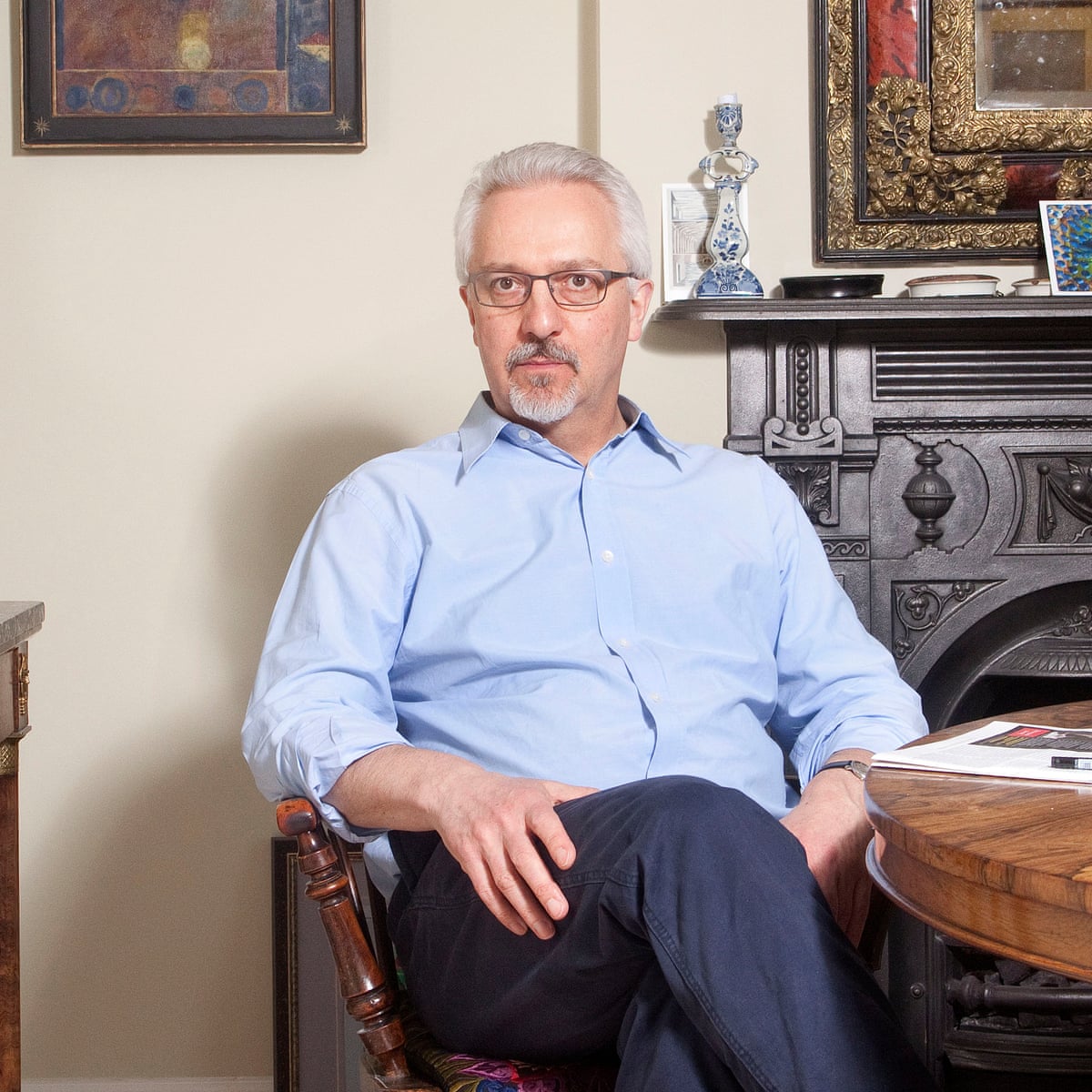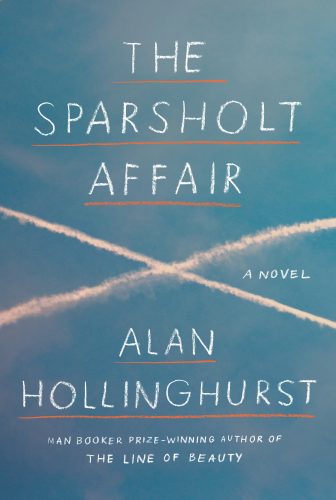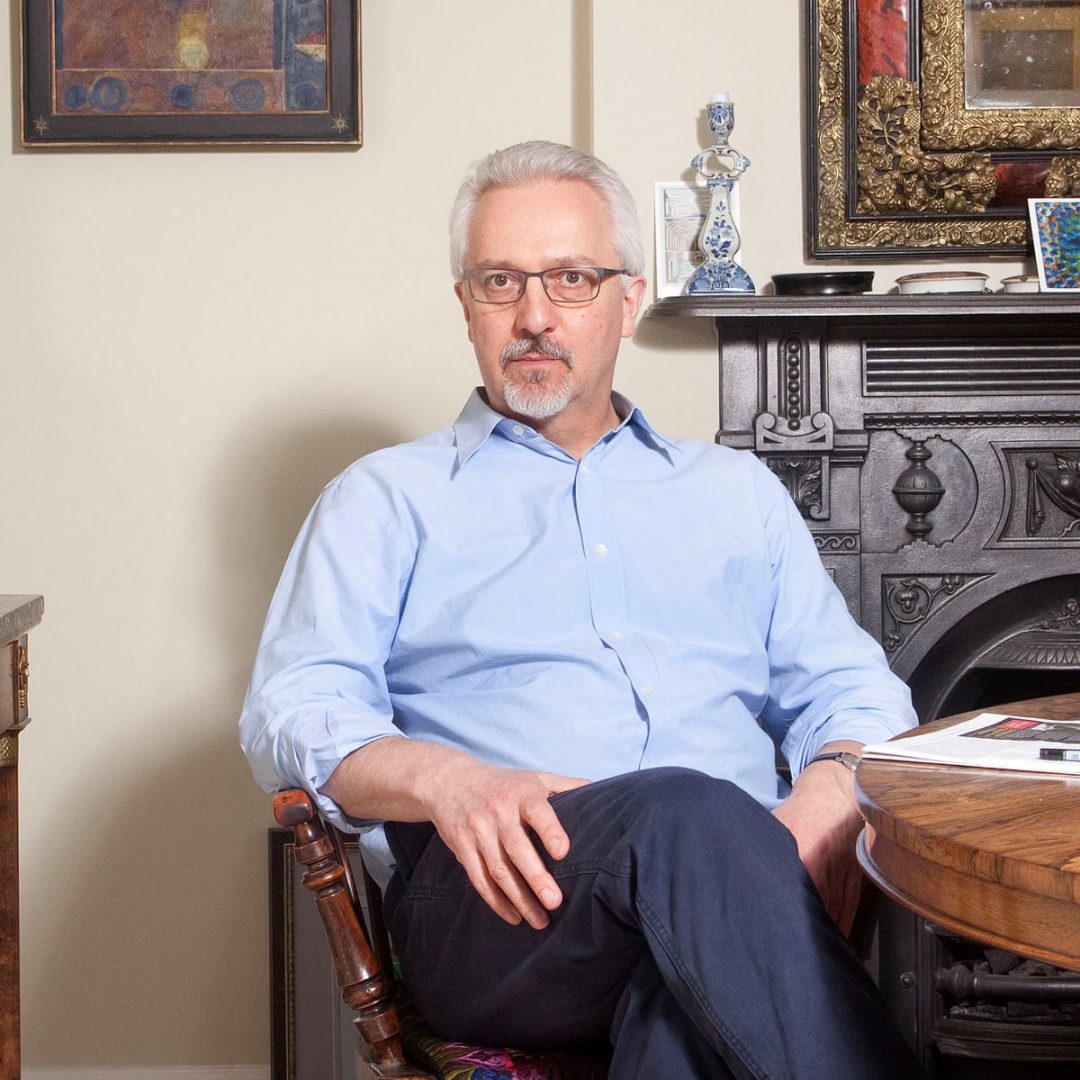Alan Hollinghurst: On the Current State of Intrigue in Gay Life

Author: Curt Weber
August 12, 2018
On a chilly, typically English day in the fall of 2011 I came to the fringe of Hampstead Heath in London to meet and interview Alan Hollinghurst in his home overlooking the green fields and hills. He had just released his fifth novel, The Stranger’s Child, to great reviews. Seven years later I am back to talk about his sixth novel, The Sparsholt Affair, but this time the heath has a multitude of browns—the dry grass bleached from the surprisingly hot and dry English summer sun, which almost everyone is complaining about.
Alan is in good spirits—again the reviews have been great, and just the week before he was at Buckingham Palace for the celebration of the fiftieth anniversary of the Man Booker Prize, which he won in 2004 for The Line of Beauty. We spoke about readers’ perceptions and the loss of intrigue in gay life.
How was the recent tour to promote your book in the US?
It’s always reassuring, coming back every six years or so and finding that people still want to come and see you and hear you. There seems to have been a pretty positive reception of the book, and the reviews were very nice which helps a lot—it’s difficult going around promoting a book against a background of stinkers.
I enjoyed the bookshop events, which are more intimate, with a crowd packed into a small place and a stronger sense of connection with the listeners, the readers. Harvard Bookstore was great and Politics and Prose in Washington too. I much prefer that to a theatrical setting with a lectern looking out on a hall which is very rarely full. I was perhaps warier than I had been before of my book being very English, but then I think the effect of its coming from a different culture from one’s own is also part of the appeal. Sometimes I wondered if readers were going to make the imaginative leap required by this book, since there’s a lot in it that isn’t fully explained, and it turns on certain specific questions in English social history, such as the decriminalization of homosexuality in 1967. So I was cheered that people generally seemed to get it and fall under its spell.
Did you worry that people wouldn’t get it?
Well, you never know. In the past, I’ve known American publishers to be unduly cautious, as if they were afraid no American person would get an English book at all—which always seemed to me an insult to the readership. I’m happy that this keeps proving not to be the case.
The book is being translated into Portuguese now, so that clearly means there is a non-English-speaking audience.
Yes, the book is being translated into a lot of other languages. There is a general feeling at the moment that literary fiction is not selling as well as it used to, and it seems to be particularly dramatic in America in the era of Trump. It’s fascinating that when there is a sense of national crisis—I remember this with The Line of Beauty after 9/11—people are far less interested in reading fiction; perhaps as other things become more pressing fiction gets squashed out. I feel there is an anxiety among publishers that nobody is buying novels at all.
Do you feel pressure to write more, or less, gay content?
I don’t feel under any pressure of that kind, no. I started out writing things that were very gay. And that was the point. I was going to do something that had never really been done before in English fiction, which was to write unapologetically from a gay point of view. And to make the stories centrally about gay lives and glimpses into gay history. But I think I’ve broadened my canvas as time has gone by. The main character of The Stranger’s Child is really Daphne, a heterosexual woman. She is rather horrified when she receives an advance from another woman. Nonetheless, matters of gay history coming belatedly to light create the whole structure of the book. I feel I’m always writing about gay life and gay matters, but I don’t any longer think of them quite in those terms—I don’t think ‘how gay is this one going to be?’ and I certainly don’t feel under any sort of obligation to any area of potential readership to do a particular thing. I suppose I am responding to my own inner mysterious sense of what seems interesting and what comes to me.
I’m a very un-schematic sort of writer—don’t sit down and think, ‘Right: I am going to write a novel about X’. I find after a while that a book is mysteriously accumulating in my mind and I find out a lot about it in the course of writing it, and even more about it after I’ve written it and other people start reading it.
Their interpretation of it?
Yes. People’s varied personal responses to books. That’s one of the things I love about the novel. You never know how someone is going to take it, which makes it all the more absurd to try to write to meet the requirements of any particular area of readership. Above all, I suppose I’m trying to provide the artistically most satisfying solution to the strange problem that I’ve set myself. Not that I don’t take responsibility for my books, but there are always things about them that surprise me, and all those unknown and unexpected things are what make the actual writing enjoyable and alive.
The first time I have seen you write about lesbian characters is in The Sparsholt Affair. How did that come about?
 It came about partly by the exigencies of the plot. I wanted Johnny, the son of David Sparsholt, a man involved in a famous scandal, to be leading a different kind of life from his father, one with new freedoms and possibilities. I was interested in the generational pattern of the book, the oppressive presence of a difficult or scandalous father in the lives of several of the characters. I wanted to take the pattern a stage further, but without having Johnny as a bisexual person; I wanted him to be a gay man, but I wanted him to become a father. So the scenario in which he would have a child with a lesbian friend suggested itself early on. And it had the interest of something I’ve never really written about before. I have lesbian friends who have had children by the same father, and others with children from different fathers, and I’ve watched the fascinating thing of a child growing up with two mothers and a father who is to a greater or lesser extent peripheral.
It came about partly by the exigencies of the plot. I wanted Johnny, the son of David Sparsholt, a man involved in a famous scandal, to be leading a different kind of life from his father, one with new freedoms and possibilities. I was interested in the generational pattern of the book, the oppressive presence of a difficult or scandalous father in the lives of several of the characters. I wanted to take the pattern a stage further, but without having Johnny as a bisexual person; I wanted him to be a gay man, but I wanted him to become a father. So the scenario in which he would have a child with a lesbian friend suggested itself early on. And it had the interest of something I’ve never really written about before. I have lesbian friends who have had children by the same father, and others with children from different fathers, and I’ve watched the fascinating thing of a child growing up with two mothers and a father who is to a greater or lesser extent peripheral.
I also touched on lesbianism in The Stranger’s Child. The interior decorator in the 1920s section—Mrs. Riley—is a lesbian. Daphne is very anxious that she is having an affair with her husband but she is rather naive about these matters. Mrs. Riley is actually much more interested in her.
You love to write intergenerational stories—we’ve just passed the 30th anniversary of The Swimming-Pool Library. Any thoughts of a sequel to that?
No! I have never had thoughts of sequels.
Maybe the word sequel gives it a certain weight. Have you ever wanted to continue the story?
In a sense, I already did that. That story ends on the summer of 1983—
Just before AIDS.
Yes, very pointedly so. I started writing it at the beginning of 1984, and by the time it was published in 1998, the whole world that I was writing about had changed. But I made a point of it being set just before AIDS, and indeed before all the other great convulsions of the 1980s. So when I came to write my fourth book, The Line Of Beauty, I very consciously went back and started it at the moment that first novel ends and took the larger story on for the next three or four years, writing something about the AIDS crisis, which I hadn’t really done before. I seem to have found it easier to write about it as part of a larger picture of a very dynamic and upsetting period. So it wasn’t precisely a sequel—not a continuation of the particular story or characters of the first book, but it was a way of taking up and pursuing the bigger story of gay lives. I’ve never wanted to do the specific thing of revisiting characters—for me they don’t have a life off the page.
It’s always very touching when people talk about them as if they did exist: “What did happen to so and so?” I always say I have no idea. I have no more knowledge of the characters than what is contained in the book. And anyway, I’ve written enough about the 80s—I don’t want to go back there anymore. It seems that in an unsystematic way I’ve been blocking in the gay story in the various decades since the 1920s, and the 1980s are done.
Was there a period in the 80s in The Sparsholt Affair?
No, I jumped over it. I jumped from the mid-70s to the mid-90s. It was conscious—this one just wasn’t going to be a book about AIDS. In a way, it’s a more cheerful and optimistic book—more so perhaps than I expected it to be when I started writing it. It has, by my standards, a happy ending, of an open kind. I resisted my usual temptation to do something terrible to my characters just before the end. It has a distinctly different tone.
You write about dating apps which have taken dating and meeting people out of the streets and clubs. Is the art of cruising suffering as a result?
Yes, that’s true. So many gay social spaces are disappearing—bars, pubs, bookshops, clubs—there are fewer and fewer. At the same time, gay people are becoming more confident and unselfconscious. There is less of the sense of being in a particular culture—parting the curtain and stepping through the door from the street into this particular world. That is something that still has a lingering magic to me.
Of course, it was often dreadful too, as you stood around all night nursing your pint, and nothing happening. Much better to spend the time at home with a good book. Now you can save that waste of time and fix up a date in ten seconds.
Yes, but many spend hours online.
Yes, it can swallow up time. It’s addictive in a subtly different way from being out and about. I do mourn the passing of gay spaces and gay rituals of that kind. I don’t know if you could do a happiness test to see if the general sense of well-being of sexually active gay men is better in the world of Grindr than in previous times. Perhaps it is. I noticed it’s an addictive thing among some younger friends of mine who are obsessed with their dating apps, who get up after the first course of dinner and come back twenty minutes later and rejoin the party for pudding. It’s bad manners apart from anything else.
Or leave dinner for the pudding they found elsewhere!
If you want to have masses of sex all the time, because of the highly functional nature of it, it works. And you do it and it’s over. There are subtler things I value, in chatting to people and actually getting to know them—though I know people do chat online, and not everyone is looking for sex on apps. I know long-term couples who first met on these apps. So one shouldn’t over-generalize about these things.
The mechanism both emotionally and physically is changing—not looking someone in the eye when chatting, or being in their proximity. It’s a different sort of interaction.
It’s very extraordinary. I’m sure there are writers who deal with it fictionally in a way that I don’t feel I’m quite up to. The way our whole sense of life is changed as the result of the internet.
Maybe a science fiction novel is in your future.
I think we are living in a science fiction novel.
What are your thoughts on the belief that in being accepted by and integrated into mainstream society, being gay has lost its subversive edge—it’s lost part of its allure or eroticism?
I do feel there’s something in that. I find the whole subject ambiguous. As a writer, I keep finding myself drawn back to those earlier periods, with their frisson of being a dissident, or an outlaw. But of course, it’s much nicer to actually live in a culture where, broadly speaking, one is accepted. Though that’s another generalization, as it’s not easy for everybody; not all gay people feel great about their sexuality, or they don’t embrace it without a sense of conflict. And in other cultures, things are getting worse and worse. I’m always aware of this. In the present-day parts of my recent books I know I’m writing about a metropolitan, liberal, cultural scene, but this is a particular thing—a lot of the world is not like that at all. There are still all sorts of social problems faced by gay people, and all this liberty and acceptance is constantly vulnerable to change. Or there is the fear of it being withdrawn, particularly in the toxic, right-wing atmosphere in so much of the Western world—one thinks of these arbitrary edicts banning transgenders in the military, for instance. Reactionary politics can play with alarming ease on a base antipathy to sexual difference. It is always there ready to be activated. It’s not all sunshine.

